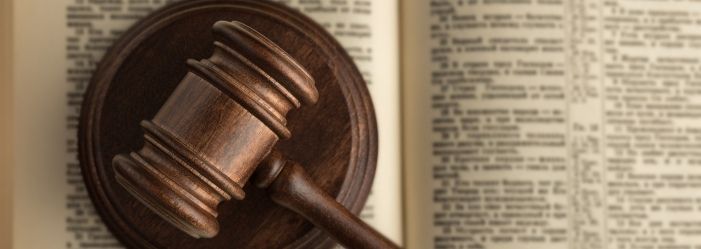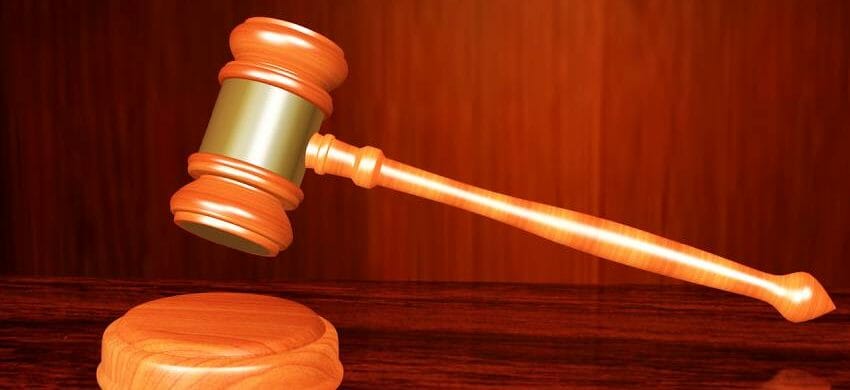Last Updated: April 07, 2024
Respond Wisely and Avoid Court Judgments

Disclaimer: We are not qualified legal or tax professionals and are not giving advice. Always speak with a qualified professional before making any legal or financial decisions.
California residents, in particular, have seen a notable increase in credit card collection lawsuits, reflecting a broader national trend.
The Federal Trade Commission (FTC) emphasizes the importance of knowing your rights under the
Fair Debt Collection Practices Act (FDCPA), which provides a framework for the treatment of consumers by debt collectors and legal actions related to debt collection.
In recent years, the landscape of credit card debt collection has evolved significantly, especially in the wake of economic challenges. With the number of lawsuits over credit card debts on the rise, understanding your rights and the legal process has never been more crucial. As of 2024, changes in legislation and an increase in financial hardships have led to a surge in credit card collection cases, making it imperative for consumers to stay informed and prepared.
If you'd like to skip the article and speak to a debt specialist, get a free consultation today!
California Residents Getting Sued Over Credit Card Collections Bills
From 2015 to 2019 the number of California residents being sued over credit card collection bills has more than doubled, going from 9,510 cases to 24,453 cases. And that number probably will not go down any time soon. Thanks to the economic hardships created by the COVID-19 epidemic, more Californians can expect a legal summons for their unpaid bills.
Rule 3.740 Collections
Rule 3.740 collection cases allow debt collectors to sue debtors who owe less than $25,000 that came from buying property, services, or money on credit. The $25,000 does not include attorney’s fees or interest. Most of the time, debt collectors are focusing on credit card debt.
If you are sued for credit card debt and the judge finds for the debt holder, the judgment can follow you for the next ten years, accruing interest that you must repay
Getting the Rule 3.740 Collections Case Letter
If you have received a summons for debt collection, Do Not Ignore It. It will not go away and you may be in a worse financial situation than you are now if you do nothing. Collection lawsuits action and documentation.
Step 1: Respond within 30 days in writing. Yes, the summons may have a date and time to appear. That date is not for you, it is for the debt collector. You must respond within 30 days of receipt or risk garnishment or other legal action. This link contains fill-in forms or suggestions for how to write a letter to the court.
Step 2: Make certain that this is your debt. Debt collectors do make mistakes and may try to collect on debts that have aged out (generally 2 to 4 years in California).
Step 3: Gather together all documentation, payments, and correspondences concerning the debt. If there are any discrepancies, courts sometimes have self-help centers or you can contact a legal firm that specializes in debt collection cases.
California Rights and Protections
Because debt collection had included questionable actions, debtors have rights and protections guaranteed by both federal (FDCPA) and California debt protections (CFDCPA) laws.
Overall, debt collectors can NOT:
- Charges more than 10% interest
- Garnish more than 25% of wages
- Use/threaten physical force or criminal tactics to harm you, your property, or your reputation
- Accusing you of committing a crime for not paying the debt
- Make/threaten to make defamatory statements to someone else
- Threaten arrest, to seize assets, or garnish wages, unless actually planning to take such action
- Use obscene or profane language
- Cause you to spend money you wouldn’t otherwise have spent (ie long-distance telephone calls)
- Call you repeatedly or let your phone ring repeatedly
- Call frequently
- Contact your employer, except to verify employment or health insurance status, garnish wages or locate you
- Reveal information about debt to anyone except your spouse or your parents if a minor.
- Publicly publish your name for failing to pay
- Send a postcard or letter with revealing information on the envelope
- Claim to be someone other than a debt collector, including a governmental official
- Use stationary that appears to be from a law firm
- Charge you collection or attorney’s fees unless legally allowable
- Threaten to report you to a credit reporting agency if they have no intention of doing so
- Send a letter claiming to come from a claim, credit, audit, or legal department unless it actually is
Debt collectors must:
- Disclose caller identification
- May contact your family to locate you
- Must serve you with notice of a lawsuit if suing you
- Must sue you in the county where you first incurred the debt
If you have been on the receiving end of these illegal actions, talk to a lawyer. You can find one by checking out the state bar, asking friends, or looking online. Searches such as “San Diego attorneys collections” can yield excellent results.
In Debt But Not Summoned
If you haven’t been summoned but are worried that you will be, check out your California debt relief options. Once you understand what options are out there, give Pacific Debt, Inc.’s award-winning debt specialists a call. They will answer your questions, review your unique situation, and even send you to a trusted partner if Pacific Debt’s program is not right for you.
Experts in debt collections expect the number of Rule 3.740 collection cases to skyrocket as the pandemic winds down. Many Californians have been using their credit cards to survive these last few months and the debt collectors are ready to feed off their misery.
What If You Don't Recognize the Debt?
If you receive a letter from a collection agency about a debt you don't recognize or believe is inaccurate, don't ignore it. There are steps you can take:
First, send the collection agency a [[debt validation letter]] within 30 days. This requires them to verify details about the debt and prove you owe it. Stop any payments until they can validate it.
If their response doesn't resolve the discrepancy or you still dispute owing the debt at all, send a formal written dispute listing the reasons why. The Fair Debt Collection Practices Act requires them to stop collections until they have investigated.
If you suspect identity theft or fraud is behind the incorrect debt, you also need to place a fraud alert and get copies of your credit reports as soon as possible. Then report the identity theft to the FTC and file a police report. Getting proof there is fraudulent or inaccurate information connected to your identity is important for stopping continued issues.
More on Debt Collection Harassment and Scams
While debt collectors do sometimes resort to pressure tactics, it's illegal for them to harass, threaten, or verbally abuse you. Recognizing their scam tactics can help avoid being tricked into paying debts never owed:
- Never pay debts just because someone calls demanding payment. Always independently verify who they are.
- Don't fall for threats or calls demanding immediate payment or legal action.
- Fake collection calls may spoof phone numbers to appear legitimate.
- If something seems suspicious, directly contact the original creditor about the supposed unpaid debt.
- Report any abusive, deceptive, or unfair practices to the Consumer Finance Protection Bureau.
After Paying Off the Debt Collection Account
Once you pay or settle the debt, always get a confirmation in writing from the collection agency. Keep this for your records in case the account inaccurately remains on your credit report.
Within 30 days of your final payment, check your credit reports to ensure the collection account is updated properly as paid or settled. If it incorrectly still says "in collections" or has no updates, you need to dispute the inaccurate information to require an investigation and correction.
FAQs
Conclusion
Debt relief programs provide solutions when consumers can no longer manage overwhelming balances. Options like debt management, debt settlement, and bankruptcy can reduce or eliminate balances to regain financial control. Each approach impacts credit scores and has pros and cons to consider.
The best path forward depends on personal circumstances. Speaking with a nonprofit credit counseling agency or debt relief provider can help analyze your situation to find the right debt relief option. There are reputable solutions to becoming debt-free with some discipline and commitment to changing financial habits long-term.
While the debt journey is challenging, California offers resources to help its residents through difficult times. Focusing on the end goal of financial freedom keeps motivation high even through sacrifices that may be necessary along the way. There is hope for a secure financial future.
About Pacific Debt Relief
Pacific Debt Inc. is one of the leading debt settlement companies in the US and we have settled over $300 million in debt for our customers since 2002.
If you’d like more information on debt settlement or have more than $10,000 in credit card debt that you can’t repay, contact Pacific Debt, Inc. We may be able to help you become debt-free in 2 to 4 years.
Pacific Debt, Inc. has been consistently named one of the best debt settlement companies for years. In 2020, we were proud and honored to have earned two #1 rankings for our customer service.
Pacific Debt is currently providing debt relief coverage in the following states:
Alabama, Alaska, Arizona, Arkansas, California, Colorado, District of Columbia, Florida, Idaho, Indiana, Kentucky, Louisiana, Massachusetts, Maryland, Michigan, Minnesota, Missouri, Mississippi, Montana, North Carolina, Nebraska, New Mexico, New York, Oklahoma, Pennsylvania, South Dakota, Texas, Utah, Virginia, Wisconsin
* Other states can be connected to one of our trusted partners
For more information, contact one of our debt specialists today. The initial consultation is free, and our debt experts will explain your options to you.
*Disclaimer: Pacific Debt Relief explicitly states that it is not a credit repair organization, and its program does not aim to improve individuals' credit scores. The information provided here is intended solely for educational purposes, aiding consumers in making informed decisions regarding credit and debt matters. The content herein does not constitute legal or financial advice. Pacific Debt Relief strongly advises individuals to seek the counsel of qualified professionals before undertaking any legal or financial actions. Speak to a attorney if you are looking for legal advice, or learn more by reading the
debt relief tips.
Reduce Your Credit Card Debt By Up to Half

BBB Reviews | 4.9/5.0 Rating









 Do Not Sell My Personal Information
Do Not Sell My Personal Information